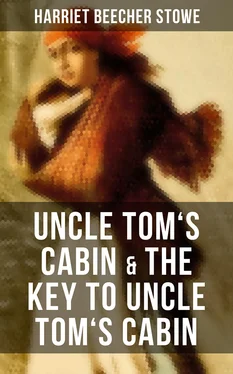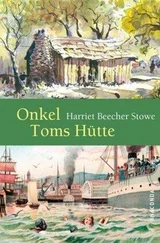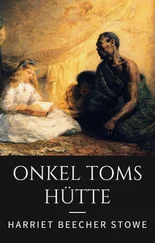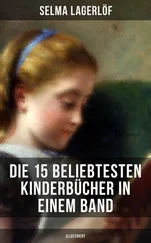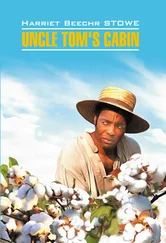"Is not that the way thee feels, George?"
"It is so indeed," said George,—"as well as I could have written it myself."
"Then, hear," said Simeon: "When I thought to know this, it was too painful for me until I went unto the sanctuary of God. Then understood I their end. Surely thou didst set them in slippery places, thou castedst them down to destruction. As a dream when one awaketh, so, oh Lord, when thou awakest, thou shalt despise their image. Nevertheless I am continually with thee; thou hast holden me by my right hand. Thou shalt guide me by thy counsel, and afterwards receive me to glory. It is good for me to draw near unto God. I have put my trust in the Lord God."*
* Ps. 73, "The End of the Wicked contrasted with that of the
Righteous."
The words of holy trust, breathed by the friendly old man, stole like sacred music over the harassed and chafed spirit of George; and after he ceased, he sat with a gentle and subdued expression on his fine features.
"If this world were all, George," said Simeon, "thee might, indeed, ask where is the Lord? But it is often those who have least of all in this life whom he chooseth for the kingdom. Put thy trust in him and, no matter what befalls thee here, he will make all right hereafter."
If these words had been spoken by some easy, self-indulgent exhorter, from whose mouth they might have come merely as pious and rhetorical flourish, proper to be used to people in distress, perhaps they might not have had much effect; but coming from one who daily and calmly risked fine and imprisonment for the cause of God and man, they had a weight that could not but be felt, and both the poor, desolate fugitives found calmness and strength breathing into them from it.
And now Rachel took Eliza's hand kindly, and led the way to the supper-table. As they were sitting down, a light tap sounded at the door, and Ruth entered.
"I just ran in," she said, "with these little stockings for the boy,—three pair, nice, warm woollen ones. It will be so cold, thee knows, in Canada. Does thee keep up good courage, Eliza?" she added, tripping round to Eliza's side of the table, and shaking her warmly by the hand, and slipping a seed-cake into Harry's hand. "I brought a little parcel of these for him," she said, tugging at her pocket to get out the package. "Children, thee knows, will always be eating."
"O, thank you; you are too kind," said Eliza.
"Come, Ruth, sit down to supper," said Rachel.
"I couldn't, any way. I left John with the baby, and some biscuits in the oven; and I can't stay a moment, else John will burn up all the biscuits, and give the baby all the sugar in the bowl. That's the way he does," said the little Quakeress, laughing. "So, good-by, Eliza; good-by, George; the Lord grant thee a safe journey;" and, with a few tripping steps, Ruth was out of the apartment.
A little while after supper, a large covered-wagon drew up before the door; the night was clear starlight; and Phineas jumped briskly down from his seat to arrange his passengers. George walked out of the door, with his child on one arm and his wife on the other. His step was firm, his face settled and resolute. Rachel and Simeon came out after them.
"You get out, a moment," said Phineas to those inside, "and let me fix the back of the wagon, there, for the women-folks and the boy."
"Here are the two buffaloes," said Rachel. "Make the seats as comfortable as may be; it's hard riding all night."
Jim came out first, and carefully assisted out his old mother, who clung to his arm, and looked anxiously about, as if she expected the pursuer every moment.
"Jim, are your pistols all in order?" said George, in a low, firm voice.
"Yes, indeed," said Jim.
"And you've no doubt what you shall do, if they come?"
"I rather think I haven't," said Jim, throwing open his broad chest, and taking a deep breath. "Do you think I'll let them get mother again?"
During this brief colloquy, Eliza had been taking her leave of her kind friend, Rachel, and was handed into the carriage by Simeon, and, creeping into the back part with her boy, sat down among the buffalo-skins. The old woman was next handed in and seated and George and Jim placed on a rough board seat front of them, and Phineas mounted in front.
"Farewell, my friends," said Simeon, from without.
"God bless you!" answered all from within.
And the wagon drove off, rattling and jolting over the frozen road.
There was no opportunity for conversation, on account of the roughness of the way and the noise of the wheels. The vehicle, therefore, rumbled on, through long, dark stretches of woodland,—over wide dreary plains,—up hills, and down valleys,—and on, on, on they jogged, hour after hour. The child soon fell asleep, and lay heavily in his mother's lap. The poor, frightened old woman at last forgot her fears; and, even Eliza, as the night waned, found all her anxieties insufficient to keep her eyes from closing. Phineas seemed, on the whole, the briskest of the company, and beguiled his long drive with whistling certain very unquaker-like songs, as he went on.
But about three o'clock George's ear caught the hasty and decided click of a horse's hoof coming behind them at some distance and jogged Phineas by the elbow. Phineas pulled up his horses, and listened.
"That must be Michael," he said; "I think I know the sound of his gallop;" and he rose up and stretched his head anxiously back over the road.
A man riding in hot haste was now dimly descried at the top of a distant hill.
"There he is, I do believe!" said Phineas. George and Jim both sprang out of the wagon before they knew what they were doing. All stood intensely silent, with their faces turned towards the expected messenger. On he came. Now he went down into a valley, where they could not see him; but they heard the sharp, hasty tramp, rising nearer and nearer; at last they saw him emerge on the top of an eminence, within hail.
"Yes, that's Michael!" said Phineas; and, raising his voice, "Halloa, there, Michael!"
"Phineas! is that thee?"
"Yes; what news—they coming?"
"Right on behind, eight or ten of them, hot with brandy, swearing and foaming like so many wolves."
And, just as he spoke, a breeze brought the faint sound of galloping horsemen towards them.
"In with you,—quick, boys, in!" said Phineas. "If you must fight, wait till I get you a piece ahead." And, with the word, both jumped in, and Phineas lashed the horses to a run, the horseman keeping close beside them. The wagon rattled, jumped, almost flew, over the frozen ground; but plainer, and still plainer, came the noise of pursuing horsemen behind. The women heard it, and, looking anxiously out, saw, far in the rear, on the brow of a distant hill, a party of men looming up against the red-streaked sky of early dawn. Another hill, and their pursuers had evidently caught sight of their wagon, whose white cloth-covered top made it conspicuous at some distance, and a loud yell of brutal triumph came forward on the wind. Eliza sickened, and strained her child closer to her bosom; the old woman prayed and groaned, and George and Jim clenched their pistols with the grasp of despair. The pursuers gained on them fast; the carriage made a sudden turn, and brought them near a ledge of a steep overhanging rock, that rose in an isolated ridge or clump in a large lot, which was, all around it, quite clear and smooth. This isolated pile, or range of rocks, rose up black and heavy against the brightening sky, and seemed to promise shelter and concealment. It was a place well known to Phineas, who had been familiar with the spot in his hunting days; and it was to gain this point he had been racing his horses.
"Now for it!" said he, suddenly checking his horses, and springing from his seat to the ground. "Out with you, in a twinkling, every one, and up into these rocks with me. Michael, thee tie thy horse to the wagon, and drive ahead to Amariah's and get him and his boys to come back and talk to these fellows."
Читать дальше
